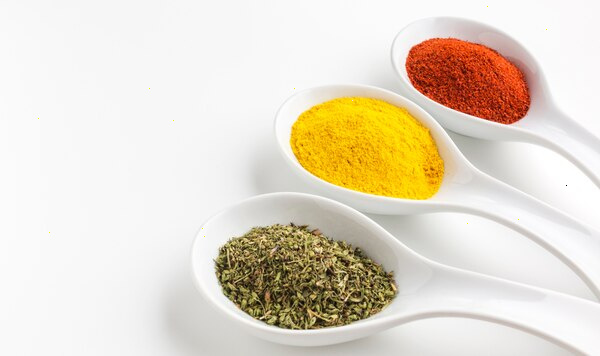The Art of Seasoning: Perfecting Your Dishes
Seasoning is a fundamental aspect of cooking that can make or break a dish. It's the delicate balance of enhancing natural flavors without overpowering them, transforming a simple recipe into a culinary masterpiece. Stepping into the art of seasoning involves understanding various seasonings, knowing when and how to use them, and developing an intuition about the flavors that complement each other.
Understanding Basic Seasonings

The most basic seasonings are salt and pepper, which form the cornerstone of flavoring any dish. Salt enhances the natural flavors of food, while pepper adds subtle heat and complexity. However, overuse can overshadow other ingredients, so moderation is key.
In addition to salt and pepper, other seasonings like herbs and spices provide depth and character. Fresh herbs like basil, cilantro, and parsley offer bright, aromatic notes, while dried spices such as cumin, turmeric, and cinnamon introduce warm and earthy flavors. Each herb and spice has unique properties, and familiarity with their profiles is essential for effective seasoning.
Knowing When to Season
Timing is crucial in the seasoning process. For instance, meats should be seasoned several hours before cooking, allowing flavors to penetrate deeply. On the other hand, delicate herbs are best added toward the end to preserve their freshness. Understanding the cooking times and volatility of different ingredients can guide when to introduce certain seasonings to your dish.
Furthermore, seasoning should be an ongoing process. Continuously taste your dish as it cooks and adjust seasonings accordingly. This practice not only ensures a balanced final product but also helps refine your palate over time.
Balancing Flavors
Balancing flavors is perhaps the most artistic part of seasoning. This involves mastering the different elements of taste: salty, sweet, sour, bitter, and umami. Each of these tastes provides a layer to the dish, and the skill is in harmonizing them.
For example, if a dish tastes too salty, a touch of acid (like lemon juice or vinegar) can counterbalance it. Similarly, a hint of sweetness can elevate the flavor profile of a spicy or bitter dish. Exploring these relationships allows you to create dishes that are complex and satisfying.
Experimentation and Intuition
The best way to perfect the art of seasoning is through experimentation and developing your intuition. Try incorporating unfamiliar spices into familiar recipes, or play with contrasting flavors to discover new combinations. Over time, you’ll develop a natural instinct for which seasonings work together and how they affect the overall taste of your dishes.
Everyone's palate is unique, leading to different preferences in seasoning. Don't be afraid to deviate from traditional recipes to suit your taste. Keeping a journal of your experiments can help track what works and what doesn’t, allowing you to hone your skills progressively.
Conclusion
Seasoning is not just an addition to cooking; it is an art form that requires knowledge, practice, and creativity. By understanding various seasonings, mastering timing, balancing flavors, and trusting your intuition, you can transform everyday meals into extraordinary culinary experiences. As you explore and refine your seasoning techniques, you'll not only enhance your dishes but also develop a deeper appreciation for the rich tapestry of flavors available in the culinary world.